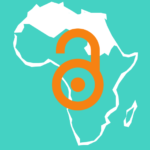This week, we look at the progress being made by transformative journals towards full open access, we hear about the theme for 2021’s global Open Access Week and learn what makes an ORCID record trustworthy. Meanwhile, we find out about the ISMPP Authorship Algorithm and authors’ and reviewers’ expectations of peer review speed. Finally, we hear about what can be done to address health misinformation.
Year zero results for transformative journals via Plan S | 6-minute read
Plan S updates us on the progress made by transformative journals (TJs) towards full open access for 2020, or ‘year zero’ of the plan. There are now 2268 TJs, which use a subscription or hybrid publishing model but have committed to gradually increasing their open access content. TJs must demonstrate an annual increase in open access research content of “at least 5% points in absolute terms and at least 15% in relative terms” to stay in the TJ programme. This analysis looks at the open access penetration rate of TJs and finds that they are at very different stages in their transition to a full open access model.
Open Access Week 2021 theme announced via SPARC | 3-minute read
Open Access Week is a global, community-driven week of action to increase free access to research. The theme for this year’s Open Access Week, to be held 25–31 October, will be ‘It matters how we open knowledge: building structural equity’. The theme aligns with the recent UNESCO Recommendation on Open Science and will highlight the Recommendation’s call for equitable participation for all producers and consumers of knowledge.
How do I know if an ORCID record is trustworthy? via ORCID | 10-minute read
Celebrating 5 years of the ORCID Trust Program, this blog discusses the ‘trust markers’ that help to verify an ORCID entry. The most powerful of these trust markers are affiliation assertions made by ORCID member organizations. Another source of trust markers is author works, such as publications; 80% of works are added by publishers, repositories or indexing databases. Additionally, the ‘date of last activity’ can let us know if a record is frequently maintained and updated. It is worth noting that although trust markers help to validate an ORCID entry, a lack of some or all of these markers does not automatically mean that a record is untrustworthy.
What constitutes ‘substantial contribution’ in research? via The Publication Plan | 6-minute read
The new International Society for Medical Publication Professionals (ISMPP) Authorship Algorithm aims to standardize the interpretation and application of the International Committee of Medical Journal Editors (ICMJE) authorship criteria, particularly by defining what constitutes ‘substantial contribution’. The algorithm, developed by the ISMPP Author Algorithm Task Force, uses a framework of detailed descriptors to help authors to determine objectively their levels of contribution to the conception or design of the work, acquisition of data, analysis of data and interpretation of data. ISMPP hopes that the algorithm will facilitate up-front authorship discussions that will be continually revisited during manuscript development up until publication.
Authors want more speed; reviewers want more time via The Scholarly Kitchen | 10-minute read
Angela Cochran, vice president of publishing at the American Society of Clinical Oncology, revisits the contrasting expectations of authors and reviewers in the publication process, with authors demanding speed and reviewers needing time. Many researchers find the review process too slow, but are perhaps themselves sluggish with their reviewing speed. Proposed solutions are to address the imbalance between the publishing and peer review outputs of some countries, provide reviewer training opportunities and be realistic about estimated publishing times.
Tackling health misinformation via The Publication Plan | 7-minute read
Brian Southwell, a communication and human behaviour expert at Research Triangle Institute (RTI) International, discusses what can be done to address health misinformation and to increase public trust in science. Misinformation can have serious consequences for public health, which have been recently highlighted during the COVID-19 pandemic. Here, Brian discusses the role of sensationalist headlines and social media on public confidence in health information. Discussing open access and plain language summaries, Brian suggests that scientists could do more to summarize and translate their research to make it truly accessible to the public.
We at Open Pharma would like to continue to encourage all our readers to look after themselves and their community and to continue to follow advice from their country’s government and health organizations.
Coronavirus mental health and well-being resources:






